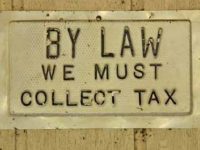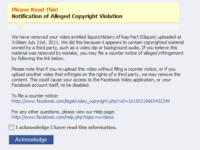The CRTC this morning rejected the Bell coalition’s website blocking proposal, concluding that the application to establish a new anti-piracy agency and approve site blocking without court oversight falls outside its jurisdiction. Opponents of the site blocking proposal frequently cited concerns with the proposal and the limits of the CRTC’s mandate: my posts discussed how it failed to further and undermined the Telecommunications Act policy objectives, and was inconsistent with the CRTC’s policy direction. Similar comments came from groups such as ISOC Canada, which argued that the applications involved copyright, not telecommunications.

Fair Dealing by Giulia Forsythe (CC BY-NC-SA 2.0) https://flic.kr/p/dRkXwP
Copyright
From Copyright Term to Super Bowl Commercials: Breaking Down the Digital NAFTA Deal
Canada and the U.S. reached agreement late yesterday on a new NAFTA (now renamed the U.S.-Mexico-Canada Agreement or USMCA). While much of the focus is on the dairy industry, dispute resolution, and the auto sector, the agreement will have significant implications for intellectual property, digital policy, and broadcasting. It will take some time to examine all the provisions, but the short-hand version is that Canada has agreed to extend the term of copyright, saved the notice-and-notice system for copyright infringement claims, extended the term of protection for biologics at significant long-term cost to the health care, agreed that Internet companies are not liable for third party content, extended border measures on counterfeiting, and promised to drop the CRTC policy that permitted U.S. commercials to be aired during the Super Bowl broadcast.
Canadian Music Group Calls For Copyright Tax on Broadband Data Use
The hearings into Canadian copyright have resumed at both the Industry and Canadian Heritage committees with witnesses making the case for a wide range of reforms. While Bryan Adams received the lion share of attention last week for his proposal to assist creators with quicker reversion of their rights, another proposal from the Screen Composers Guild of Canada (SCGC) deserves some scrutiny as an illustration of how many groups want new taxes or fees imposed on Internet services and technologies. I’ve written in the past about the music industry’s call for a tax on iPhones and other devices as well as its proposal for a $40 million per year taxpayer handout in until an iPhone tax can be implemented. This week the SCGC introduced a new proposal that would subject broadband data use to a copyright tax.
Cuts Like a Knife: Bryan Adams Calls for Stronger Protections Against One-Sided Record Label Contracts
Canadian artist Bryan Adams placed copyright in the spotlight on Tuesday, appearing before the Canadian Heritage committee to make his case for copyright reform. Adams attracted widespread media coverage, though the big music industry groups such as Music Canada were conspicuously silent with not even a tweet to mark the appearance. Why the cold shoulder from the Canadian music industry to one of Canada’s best known artists? The obvious answer is that Adams sang from a far different songbook than the industry lobby groups. While those groups have been pushing for copyright term extension and a so-called “value gap” that bears little reality to Canadian law, Adams expressed artist frustration with the industry and one-sided contracts, noting that “I don’t even want to start naming the names of people who have had their copyright whisked from underneath their feet from contracts that they’ve signed as youngsters.”
Supreme Court of Canada on Copyright Notices: Identification of IP Address “Not Conclusive of Guilt”
The initial emphasis on last week’s Supreme Court of Canada’s copyright notice decision has focused on how Internet providers can pass along the specific costs associated with subscriber disclosures beyond those required for the notice-and-notice system to rights holders. The ruling rightly restores the notice system back to its intended approach, but it is not the only takeaway with implications for the recent flurry of file sharing lawsuits. While there has been a huge number of claims filed in Canada (with some surprisingly large settlements), the Supreme Court acknowledged important limitations in notice claims, noting that merely being associated with an IP address is not conclusive of guilt.











